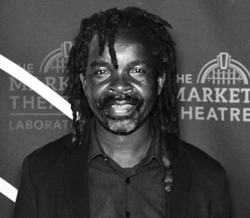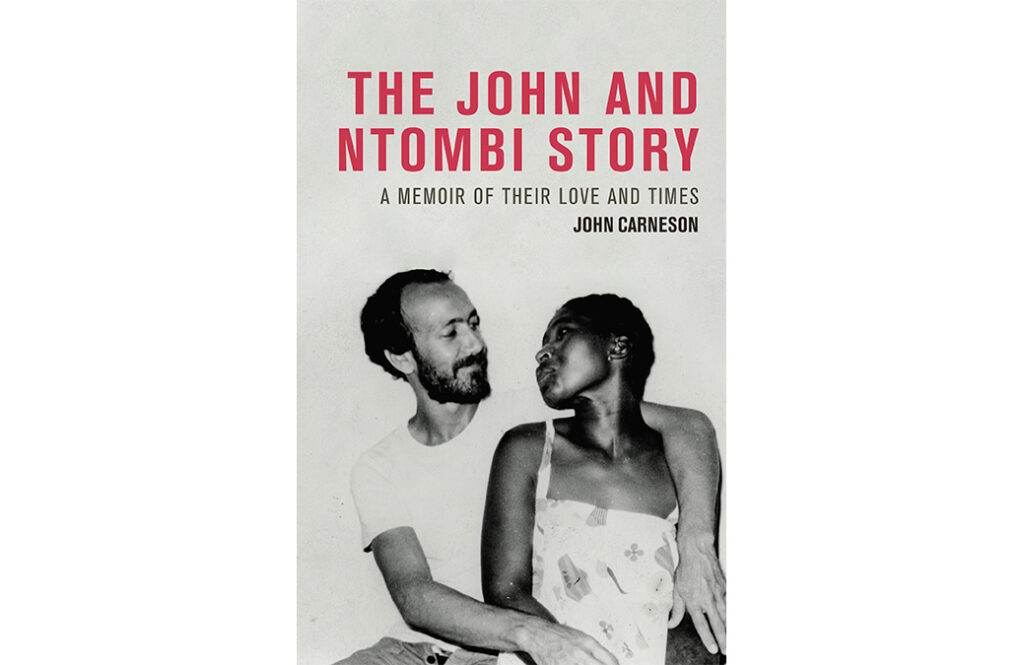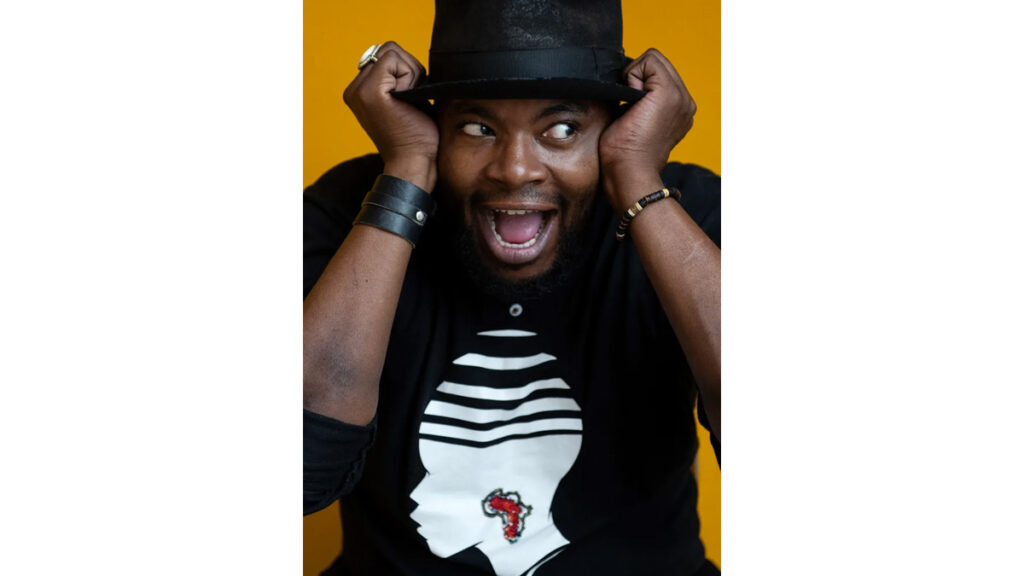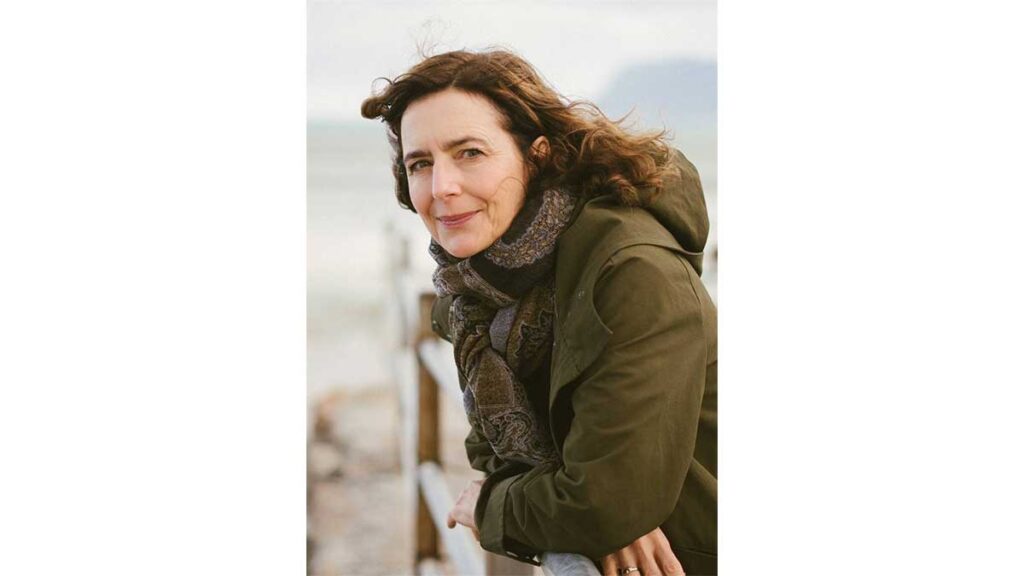Poetry taking on new life: John Carneson and Nohlanhla Siwela to take on stage in Melville, Mak Manaka to launch books and publishing company at Market Theatre
By Edward Tsumele, CITYLIFE/ARTS Editor

The last time I attended we watched a poetry reading session under the glow of small white battery powered candles, thanks to load-shedding. God forbid, hopefully this time power will be available. At the session, though it was not intended that way, at the end, the situation actually created a great mood in the room.
The room of Spilt Milk Social Café was therefore darkly lit, giving a façade of a smokey bar. The audience, mainly poets, did not seem to mind though. In fact it must have been the first time that all of us who congregated in this venue enjoyed poetry under candle light.

This is because poetry in South Africa usually has its highs and lows. Such as in the late 90s to early 2000s, when poetry enjoyed tremendous success, especially spoken word poetry. It was also the first time in post-Apartheid South Africa that poets, especially spoken word poets, were increasingly paid to perform at official gigs, such as government gigs.
Those lucky to titivate the interest of officialdom, such as the all-female feminist inclined collective Feel-A-Sistah that comprised Lebo Mashile, the late Myesh Jenkins, poet and playwright Napo Masheane, and poet and singer Ntsiki Mazwai, were even paid decent money.
Others who either also coined it at the time or were in the popular imagination, include Makomele ‘Mak’ Manaka, Masoja Msiza, who is now a popular actor on TV soapie Uzalo and The Prophet, to name but just a few. Consequently several platforms featuring poetry opened up, mushroomed even.


Such as in smokey bars, in places such as Jeppestown, Yeoville and Melville among others. Such smokey venues of the time, such as the now defunct Cool Runnings in Melville, became the hounds for a poet who had something to say about “the system” or “the human condition” in South Africa.
And certainly globally. It was also at the same time when bigger platforms that accommodated poets, and paid them good money, were initiated. Here I am talking about the M&G Literary Festival, whose home was the Market Theatre in Newtown, and Poetry Africa Festival at the Centre for Creative Arts at the University of KwaZulu-Natal.
The later still exists till this day, while the former dissolved with the passage of time. Television channels also featured poets on their programmes, further popularising poetry among their viewers. Some poets even took advantage of their good fortunes and expanded their brands, such as recording music and taking on roles on TV as actors and presenters, while others became MCs of big events.
Among those who went this route include Msiza, Mazwai and Mashile among others. Spoken word poetry had become so popular that young poets were inspired to create and perform, and the space was so crowded, with all sorts of poets.
Kit seemed like every young person thought they were a poet those days. The good, the bad and the chancers, to the extent that certain voices of concern among senior poets started to emerge. Seasoned poets started complaining about the quality of what was created by some of these young poets. Experienced poets such as the late Keorapetse Willie Kgositsile insisted that the new generation of poets needed to “write material that can stand on paper on its own.”
Not be carried by the charisma of the performer while the writing was sloppy or did not meet the threshold of what poetry is or should be. His opinion may not have been popular among the ranks of the young poets, whose inspiration seemed to be that of being seen on stage and other platforms, without necessarily investing in reefing their craft as writers. Not bad to dream big after all. However Kgositsile had a point.

However whether some of the material indeed stood on paper on their own or not, there is no certainty there. It will always be a contested space. However there is no denying that that time was a period when South Africa was pregnant with so much creative juice among the ranks of the youth. It really carried the promise of a poetry renaissance of sorts in post-Apartheid South Africa.
But then something happened towards the end of the 2000s. The decline of the status of the poet and his poetry begun. The poets in South Africa started to starve again. No gigs at government events. No gigs on bigger poetry platforms as some of the platforms that offered food and status to the South Africa poet in the public imagination themselves dissolved into nothingness. That created a vacuum in poetry in general and performance poetry in particular. Left are now the wailing voices of a few die-hard poets whose voices are suppressed and muffled by a system that favours money over talent.
Wake up the dead poet
Hopefully the poetry renaissance of sorts that took place in those years,
But unfortunately became a dream deferred
Will slowly resuscitate itself and become energetic again.
And then, the dead poet will wake up
And sing the songs of the ancestors
To the living dead of today
The South Africa poet will again find his lost voice
He will again search and find his discarded Mic
Dust it and go on stage
And remind us of what we once were
A proud people that did not sing for their supper
But sang to nourish their soul
And that of the nation
That was once rainbow
And now is smashing itself into nothingness
Wake up the dead poet
–Edward Tsumele (2023)
However poetry lovers and poets will be excited to know that slowly poetry seems to be emerging from its various cemeteries scattered around the country to take centre stage again.
On Tuesday, April 25, 2023, poetry lovers will once again congregate at Spilt Milk Social Café in Melville to enjoy some great poetry readings and hopefully performances, and this time from John Carneson and Nonhlanhla Siwela, who are featured poets for the evening. After the two featured poets’ readings, the stage will be open for any poet motivated enough to want to share their poetry with the audience. This segment is the Open Mic part of the evening.
John is the author of the memoir John and Ntombi Story, and Siwela has authored a poetry anthology titled The Rainbow is Black. Books will be available to purchase during the event.
.This is the second iteration of Poetry Tuesday at Spilt Milk Social Café. The price for entry is R130pp, and this includes a light meal and drink. You can book through WhatsAPP No. 081 0795436.Spilt Milk Social Café is Shop No.1, Cnr 7th Street, Melville.
.In the meantime celebrated poet Mak Manaka will be launching three books, under his latest project Traslating the Protea, which are part of the translation of his book into three South African indigenous languages, Afrikaans, Sepedi and isiXhosa and a new publishing company he founded called Manaka Publishing. The launch is at the Ramaloa Makhene Theatre at the Market Theatre precinct on Thursday, April 27, 2023, at 2.30pm. The translators are Nape Motana (Sepedi), Pier Odendaal (Afrikaans) and Ayanda Billie (isiXhosa). The event is billed as a celebration of languages and is free to attend.
LIVING IN A STATE OF ALERTNESS
Do you ever find yourself wondering how poets manage to conjure poems that sound so perfectly finished out of thin air?
If you approach reading and writing poems in this way, you might come to believe that poems are only composed in the minds of a few very special individuals.

Finuala Dowling, an award-winning poet who has published four collections, believes that the truth is much more exciting and lies much closer to home. In her legendary poetry workshops and courses, she challenges aspiring poets to find raw material for poems hidden in the most ordinary experiences: overheard conversations, catalogues and lists of names, implements we use every day. The trick, she says, is to be alert and pay close attention to everything we encounter.
She has shared five exercises with us, which she uses to help poets hinge into writing.
.Write down a simple observation, followed by a reflection. Choose something simple, apparently ordinary: a daily routine, an anecdote, an activity. Describe or record it. Then spend a few moments reflecting. What message, insight or resonance is hidden in what you’ve observed?
.Begin this exercise by asserting that something of great importance is coming. After alerting the reader with this fanfare, describe a simple or humble object, gesture, greeting, action, scene.
Your poem should consist of a single sentence with line breaks. If you like, you can use one of these phrases to start:
Nothing more important than…
This I have loved more than anything…
More lasting than the pyramids…
A new Olympic event:
Place your trust in…
.Don’t worry if the result is funny. (We need more funny poems.)
.Find a poem in something you’ve read, in the overheard words of a stranger or the delightful words of a relative. Signal that it is a poem by giving it line breaks. If you like, you can add some contextualising words of your own.
.The pioneering educator Annemarie Roeper wrote that one of the strange things that we humans can do is to look at our own selves from the outside in, as well as from the inside out. In other words, we can feel and at the same time watch ourselves feeling.
.Write a dialogue poem in which the watching self interviews the inside self about how she/he is feeling.
.Every year, police receive baffling complaints from the public, including:
A man phoned to complain of a bright light in the sky. Police investigated and found it was the moon.
A man phoned to alert police to a suspicious peanut in his yard.
Parents complained that a man living near a learning centre spent hours every day observing their children from a window. Police investigated and found a cardboard cut-out of Arnold Schwarzenegger.
A woman reported that someone must be stealing her mail because she did not receive the normal amount of birthday cards.
.Write a poem made up of imaginary police reports, or a poem entitled ‘Do not telephone the police in the following circumstances’.
In the coming days, allow these exercises to guide your thoughts as you find your best words. Remember that nothing is too ordinary or too strange to become raw material for your writing. You can read more about Dowling’s work on her website or order her new and selected collection Pretend You Don’t Know Me and be moved and entertained by her work.
Website: https://finualadowling.com/
Instagram: @finuala_dowling
.Remember that the AVBOB Poetry Competition reopens on 1 August 2023. Visit our website regularly at https://www.avbobpoetry.co.za/ for editing tips and advice as well as updates about upcoming workshops.










